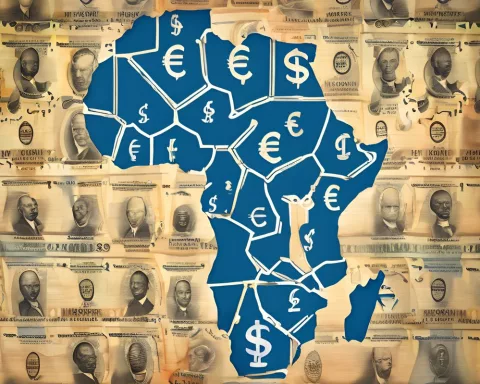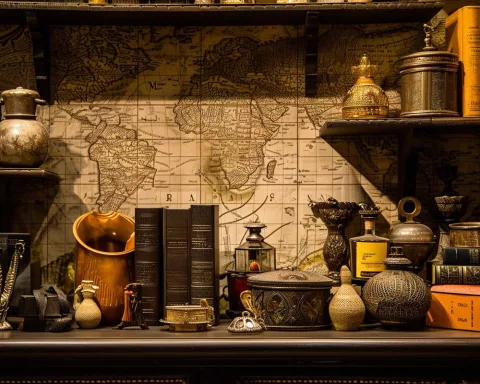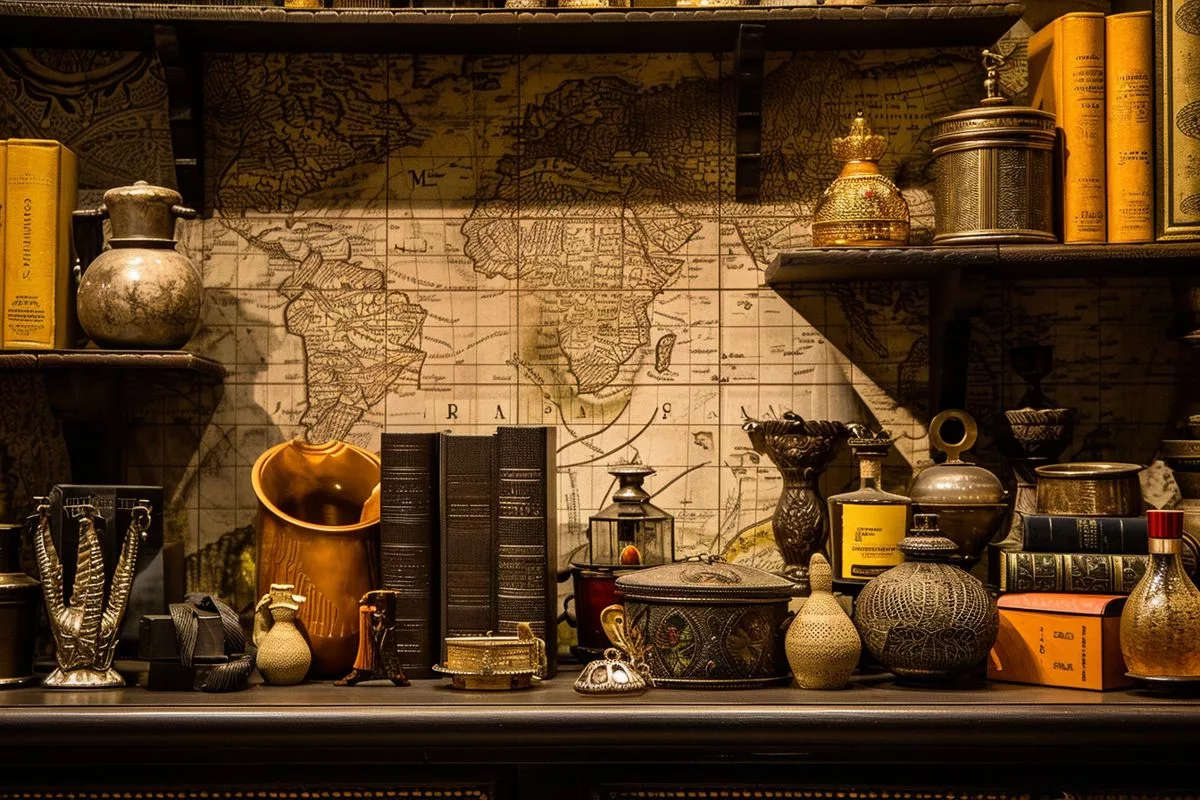Johann Rupert, the patriarch of the Richemont family, has surpassed Nigerian magnate Aliko Dangote as the wealthiest person in Africa. The growth and success of the Richemont group, which includes luxury brands such as Cartier and Van Cleef & Arpels, have solidified Rupert’s reputation as a symbol of opulence and extravagance. However, some view this development with suspicion, suggesting political implications and socio-economic critiques that hint at the story extending beyond mere monetary rankings.
In the annals of African affluence, a new ruler has emerged. Johann Rupert, a South African leader in the luxury goods industry, has surpassed Nigerian magnate Aliko Dangote, marking a significant shift in the financial landscape of the continent. Rupert, the patriarch of the Richemont family, which dominates the Swiss luxury powerhouse, has become the pinnacle of African wealth. This dramatic rise demonstrates the resiliency and dynamism of the luxury market in the face of global economic fluctuations.
Richemont: A Symbol of Wealth and Exclusivity
Johann Rupert’s reputation is inextricably linked to the growth and success of the Richemont group, a symbol of opulence and extravagance. This conglomerate is home to prestigious brands such as Cartier and Van Cleef & Arpels, representing the epitome of luxury and exclusivity. The European Union’s protection of intellectual property has strengthened these companies, safeguarding their precious trademarks and designs that are crucial to the industry.
Europe’s Obsession with Luxury
Europe’s insatiable appetite for luxury is well-known. Cities like Paris and Milan, celebrated for their artisanal heritage and extravagant spending power, serve as a hub for the world’s affluent shoppers. Outside the borders of the European Union, Geneva serves as a citadel of luxury. Richemont has managed to establish a presence there, fueled by free-trade agreements that intensify the global yearning for luxury.
Reactions to Rupert’s Rise
The public discourse on social media platforms regarding Rupert’s newfound status is robust. With an estimated fortune of $10.3 billion, Rupert and his family have surpassed Dangote, whose wealth has declined to $9.5 billion due to the devaluation of the Nigerian Naira.
Reactions to this financial upheaval are varied. While many celebrate Rupert’s achievement, others remain loyal to Dangote, a name closely associated with African prosperity. Forbes Magazine’s latest rich list has sparked intriguing conversations about the transitory nature of wealth and its impact on national identity.
Implications of Rupert’s Success
However, some view this development with suspicion, suggesting political implications and socio-economic critiques that hint at the story extending beyond mere monetary rankings.
The rise of Rupert’s financial empire brings the success of the luxury goods industry into sharp focus, while also igniting debate about the impact of wealth disparity on society. The fluctuating wealth rankings underscore the volatile and competitive nature of the global economy, shedding light on the extravagant world of luxury goods and the complex interplay of market forces that determine the fortunes of the world’s elite.
As Rupert and his family ascend to the position of Africa’s wealthiest, the continent watches with anticipation. This moment inspires reflection on the legacy of luxury, the prestige of entrepreneurship, and the dynamic narrative of wealth. The story of affluence continues to evolve, enriched by the emergence of a new titan in the world of luxury.
1. Who is Johann Rupert?
Johann Rupert is a South African leader in the luxury goods industry and the patriarch of the Richemont family, which includes luxury brands such as Cartier and Van Cleef & Arpels.
2. What is Richemont?
Richemont is a conglomerate that owns prestigious brands such as Cartier and Van Cleef & Arpels, representing the epitome of luxury and exclusivity.
3. Why is Europe obsessed with luxury?
Europe’s artisanal heritage and extravagant spending power have made cities like Paris and Milan a hub for the world’s affluent shoppers. Additionally, free-trade agreements have intensified the global yearning for luxury, with Geneva serving as a citadel of luxury.
4. What are the reactions to Johann Rupert’s rise as Africa’s wealthiest person?
Reactions to Rupert’s newfound status are varied, with some celebrating his achievement while others remain loyal to Nigerian magnate Aliko Dangote. Forbes Magazine’s latest rich list has sparked intriguing conversations about the transitory nature of wealth and its impact on national identity.
5. What are the implications of Johann Rupert’s success?
The rise of Rupert’s financial empire brings the success of the luxury goods industry into sharp focus, while also igniting debate about the impact of wealth disparity on society. The fluctuating wealth rankings underscore the volatile and competitive nature of the global economy, shedding light on the extravagant world of luxury goods and the complex interplay of market forces that determine the fortunes of the world’s elite.












